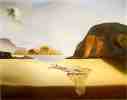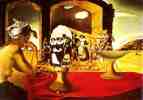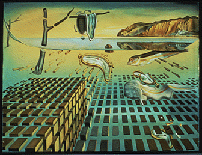 Georg Christoph Lichtenberg
Georg Christoph Lichtenberg 
Aphorisms
 Georg Christoph Lichtenberg
Georg Christoph Lichtenberg 


43. Drinking has, like painting, its mechanical and its poetical aspects, just as love has...
44. If an angel were ever to tell us anything of his philosophy I believe many propositions would sound like 2 times 2 equals 13.
46. If I should ever produce and edition of his life, go straight to the index and look up the words bottle and conceit: they will contain the most important facts about him.
52. What concerns me alone I only think, what concerns my friends I tell them, what can be of interest to only a limited public I write, and what the world ought to know is printed...
63. Is it so unjust, then, that man should leave the world by the same gate through which he entered it?


20. The journalist have constructed for themselves a little wooden chapel, which they also call the Temple of Fame, in which they put up and take down portraits all day long and make such a hammering you can't hear yourself speak.
62. What makes our poetry so contemptible nowadays is its paucity of ideas. If you want to be read, invent. Who the Devil wouldn't like to read something new?
66. When a book and a head collide and a hollow sound is heard, must it always have come from the book?
96. To do the opposite of something is also a form of imitation, namely an imitation of its opposite.
103. Body and soul: a hores harnessed beside an ox.

65. Do we write books so that they shall merely be read? Don't we also write them for employment in the household? For one that is read from start to finish, thousands are leafed through, other thousands lie motionless, others are jammed against mouseholes, thrown at rats, others are stood on, sat on, drummed on, have gingerbread baked on them or are used to light pipes with.
91. We do not think good metaphors are anything very important, but I think that a good metaphor is something even the police should keep an eye on...

 33. If countries were named after the words you first hear when you go there, England would have to be called Damn It.
33. If countries were named after the words you first hear when you go there, England would have to be called Damn It.
37. What they call "heart" lies much lower than the fourth waistcoat button.
43. Men do not go on all fours, to be sure, but they go with all fours; no one can run fast without making a similar movement with his arms. Many people swing their arms when they walk, not imitatively but by nature: the same force that moves their legs seems at the same time to move their arms; and when people jump they make a leaping movement with their arms.
61. It is as though our languages were in a state of confusion: when we want an idea they bring us a word, when we require a word they bring us a dash, and when we expected a dash there stands an obscenity.
85. What a pity isn't a sin to drink water, cried an Italian, how good it would taste. 



40. Can it be that the evil in the world is in general of more use the the good?
45. In the eyes of God there are only rules, strictly speaking only one rule with no exceptions. Because we do not know this supreme rule we construct general rules which are not rules at all; it could well be possible, indeed, that what we call rules could even for finite beings constitute exceptions.
60. This entire doctrine is worthless except as a subject of dispute.
| 65. A great speech is easy to learn by heart and a great poem even easier. How hard it would be to memorize as many words linked together senselessly, or a speech in a foreign tongue! Sense and understanding thus come to the aid of memory. Sense is order and order is in the last resort conformity with our nature. When we speak rationally we are only speaking in accordance with the nature of our being. That is why we devise genera and species in the case of plants and animals. The hypotheses we make belong here too: we are obliged to have them because otherwise we would unable to retain things... The question is, however, whether everything is legible to us. Certainly experiment and reflection enable us to introduce a significance into what is not legible, either to us or at all: thus we see faces or landscapes in the sand, though they are certainly not there. The introducion of symmetries belongs here too, silhouettes in inkblots, etc. Likewise the gradation we establish in the order of creatures: all this is not in the things but in us. In general we cannot remember too often that when we observe nature, and especially the ordering of nature, it is always ourselves alone we are observing |  |
|---|
241. France is in fermentation: whether the product will be wine or vinegar is as yet uncertain.
265. In nature we find, not words, but only the initial letters of words, and if we then attempt to read them we find that the new so-called words are again merely the initial letters of other words.

7. Nomenclature. I always believe it is best not to reform at all. It arouses animosity and envy and contempt, and too much is written about names that is really of no value whatever. The senseless disappears of itself, and that which is as it were an affront to nature does not grow again.
85. The Socratic method intensified --I mean torture.
105. Doubt everything at least once, even the proposition that two times two equals four.
